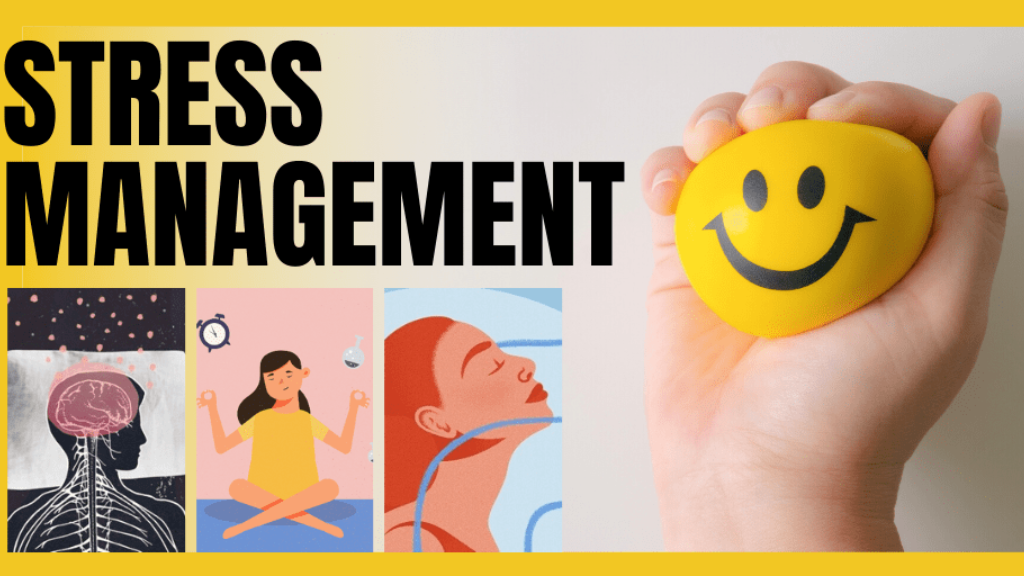| বাংলায় পড়ুন | Researchers and Reporters: Shama Sultana Ayesha Maria |
These days, workplace stress is becoming more and more of an issue. Working individuals spend a large portion of their days at work because, as we all know, income is essential to leading a fulfilling life. Aside from his regular sleep, a person’s working hours make up most of his free time.
Even though the working day is set from 9 am to 5 pm, a working man must run to his address every day, disregarding the sun, rain, and storm. He must also sit for extended periods between four walls or spend hours staring at a monitor. to nine in the evening.
Workloads vary amongst people in different jobs. However, there is always extra strain at work because even a tiny error could endanger someone’s life! Thus, mental preparation is required before engaging in these activities to ensure that the body and mind are not harmed by the extreme strain of effort.
According to the American Institute of Stress, 75% of employees think they are under more stress at work than they were in prior generations, and 1 in 4 employees list work as their biggest source of stress.
Some people have made it a habit to be extremely busy at work, even outside of the office. This stresses the body, mind, and spirit while also lowering the quality of the work that is produced. It may also cause interpersonal and familial connections to suffer. It haunts you in your time even after you leave the job, upsetting your family.
Short deadlines, an insensitive supervisor, a dearth of opportunities to showcase abilities, a never-ending paperwork pile, lengthy meetings, workloads that differ from the boss’s, handling irate clients, disagreements with coworkers, and the constant fear of having to quit at any time are some of the challenges faced by employees. A multitude of factors can lead to stress. That being said, everyone’s response to the work varies. Yet, coping mechanisms and stress indicators differ between individuals and based on the culture of their place of employment.
Now, let’s discuss the potential health and psychological effects of extreme work pressure-
Chronic muscle pain, sadness, headaches, exhaustion, difficulty making decisions, breathing issues, sleeplessness, anxiety, indigestion, heart issues, back discomfort, and a slow but steady deterioration in immunity.
According to research, high levels of stress at work also stifle motivation and creativity. Employees who are under a lot of stress may also find it difficult to collaborate in groups and may even perform worse.

Managing stress levels at work for better well-being. | Photo: Collected.
Although it’s preferable to ignore such ideas, one of our fallacies is that success is mostly achieved at work and that you should always be overworked. Because of this, working under extreme strain raises health risks for individuals and negatively affects the profitability of linked businesses.
I suggest speaking with a stress management specialist if you are experiencing stress as a result of undue work pressure.
Here are some strategies to lessen workplace stress and prevent burnout:
- You need to do a reality check on whether the high-pressure job you have is stressing you at all, and how much pressure you can handle. So you have to do a reality check.
- Workplace stress can be significantly decreased by completing tasks on time and setting priorities, or priority management.
- To break up the monotony of your work, you can take brief breaks every hour.
- Give up accepting more work than you can complete. As it could occasionally be necessary to apologize. “I’m now unable to handle much because of my workload.”
- Schedule some downtime each day, but avoid dozing off. Instead, find a comfy chair, close your eyes, and picture some lovely experiences.
- There is a close relationship between mental and nutritional wellness. Make sure your daily menu includes plenty of fresh fruits and vegetables as well as water. Create a nutritious food plan that you can follow every day.

Effective stress management techniques for the workplace. | Photo: Collected.
- You may frequently favorably alter your perspective by discussing your work-related difficulties with a family member or friend outside of work. Solving issues will become simpler when they are addressed together.
- It’s crucial for the body and the mind to get enough sleep. Our bodies are rejuvenated, relaxed, and refreshed by sleep, which also helps lessen the impacts of stress.
- Engaging in daily exercise can aid with stress reduction. This can involve both more strenuous workouts and walking.
“Balance” is the key to stress management, even if we naturally require a certain amount of tension to keep us motivated and help us do our work quickly. When workers are content and in balance at work, they are more productive and maintain physical and mental well-being. It enables individuals to function creatively and punctually at work.
























Comments